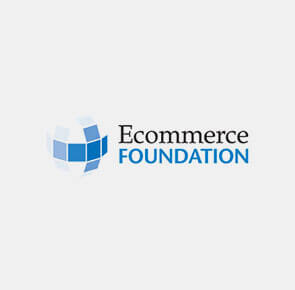University HQ is an industry-leading, independent educational organization that provides independent college rankings using a proprietary formula to create first class unbiased rankings. The team at University Headquarters strives to provide accurate and trustworthy rankings that highlights the best E-commerce programs.
What Does a Career in E-Commerce Entail?
Electronic commerce is a product of the digital age, enabled by the Internet, a global network that connects distant parts of the commercial world. People worldwide increasingly buy and sell online. E-commerce covers various business channels, including business-to-business, business-to-consumer, consumer-to-consumer, and consumer-to-business. Globally, consumers use mobile devices to connect to the Internet and make purchases.
As the global trends continue, the demand grows for highly trained people to fill key roles in expanding E-commerce businesses. The job opportunities differ from the brick-and-mortar type of commerce. E-commerce needs web designers, digital communications specialists, and business strategists. The career possibilities expand as the electronic marketplace grows by significant numbers each year.
Featured Online eCommerce Programs
How to Earn a Degree in E-Commerce
-
Students should first decide whether a career in electronic sales, marketing, customer relations, or business ownership are of greatest interest to them.
-
If you plan to use education as a gateway to an E-commerce career, then you should estimate costs of education, time required, and whether it fits your goals.
-
Select an associate or bachelor’s degree program.
-
You can choose programs that offer classes on a college campus, courses online, or a combination of on-campus and online courses.
-
The college or school should be accredited so your degree will have wide acceptance and a significant impact on your career.
What Can You Do with This Degree?
A degree in E-commerce, or business with a focus on technologies, can prepare graduates for roles as entrepreneurs in the electronic marketplace, web designers and developers, and more. Four important areas for jobs are web design and development, marketing, data analytics, and customer relations. A degree opens careers in a field of sales and marketing that has global scope and a history of dynamic growth.
Those in this field use advanced technology to support the transfers of goods, provision of services, and the movement of funds. Within a given organization, this requires people skilled and trained in management, marketing, design, development, leadership, and technology management skills.
Typical Degree Requirements
Associate degree programs in require a high school diploma or GED. This field is based on understanding sales, marketing, and the workings of the internet. Colleges and schools offer associate degree programs on campus, online, and a mix of on-campus and online coursework. Math and science are helpful backgrounds, and writing is a strong tool for learning and applying E-commerce business concepts.
Bachelor’s degree programs require a high school diploma or a GED. Applicants should demonstrate an acumen for writing, communications, and any technical field they wish to pursue such as information technology, computer management, and web design. Programs and schools may prefer candidates with strong backgrounds in science, math, computers, software applications, and the Internet. Students who wish to earn a master's or higher will need to at least have completed a bachelor's program.
Typical Certifications
Several professional organizations offer certifications in specific E-commerce categories, demonstrating a commitment to self-improvement and professional excellence. An undergraduate certificate in E-commerce management focuses on a series of courses that provide specialized knowledge and skills in the field. These programs allow non-IT managers, project team members, and other employees working on projects related to digital sales to enhance their skills, equipping them with the practical knowledge needed to organize and manage these initiatives within a company.
An E-commerce management certificate program equips managers with expertise and experience needed to develop strategies, focus on organizational structure, improve control systems, and develop customer service infrastructure.
Academic Standards
An associate degree in E-commerce is a two-year program requiring about 60 credit hours, split between general education and business coursework. General education covers subjects like science, math, and writing, while business-related studies include topics such as business fundamentals, management, web design, and data analytics. This degree provides excellent preparation for internships and practical learning experiences.
An online bachelor’s degree in E-commerce is a four-year program requiring about 120 semester hours, divided between general education, technology, and business courses. General education includes writing, math, science, and some computer-based courses. Business courses cover accounting, marketing, and finance, while technology subjects focus on web administration, web analytics, and mobile interaction.
An online master’s in this field is a one or two-year degree that requires a bachelor’s degree in business or a related field. The master’s level involves advanced studies in multimedia, marketing, finance, and business management. Master’s study prepares graduates for leadership roles and thought leadership in addition to organizational management.
Exam or Experience Needed
 There is no specific exam for a career in E-commerce, but experience is a key element for entry and advancement. The essence of this field involves electronic marketing, and websites are a consistent and common factor in successful electronic sales and marketing. Employers value hands-on experience and a demonstrated level of capability to perform the required tasks, functions, and processes.
There is no specific exam for a career in E-commerce, but experience is a key element for entry and advancement. The essence of this field involves electronic marketing, and websites are a consistent and common factor in successful electronic sales and marketing. Employers value hands-on experience and a demonstrated level of capability to perform the required tasks, functions, and processes.
This field is relatively new, being a product of the Internet and information technology. As such, the models for success are also relatively new, such as AMAZON, a young company that has grown into a leading global E-commerce retailer.
Online Associate Degree in E-Commerce
Students can enter the E-commerce world as trainees and interns and supervised positions with an associate degree. Students in associate programs learn the basics of business, management, and marketing. They get an introduction to computer fundamentals, trade terminology, software, and hardware systems.
The basics of this field include internet marketing strategy, security, and web design and development. Students should get exposure to current legal and ethical issues for multimedia use, copyrights, and privacy rules.
Sample Courses for Associates Degree
- Introduction to Electronic Commerce
- Principles of Internet Operation and Internet Security
- Video and Multimedia
- Website Development and Management
- Business Economics
- Introduction to Computer Codes
The tuition costs range from about $4,000 at public schools to $15,000 for private schools.
Bachelor’s Degree in E-Commerce
The bachelor's level builds on prior business education and experience through knowledge of software and E-commerce technology. Coursework includes real-life E-business case studies and online team projects. Students can improve Internet proficiency, learn web-based problem solving, and the inner workings of commerce systems. Students can take online college classes in management to build education and work experience.
Sample Coursework for Bachelor’s Degree
- E-Business Basics
- Writing and Communications
- Business Internet Applications
- Fundamentals of Online Management
- Marketing
- Programming and Coding
- Web Systems Development, Design, and Analysis
- Internships, Projects, and Team Collaborations
Concentrations for a bachelor’s degree in E-Commerce include Digital Communications, International Marketing, and Finance.
The total annual costs for a bachelor’s degree average around $20,000 at public schools in-state; $36,000 at public schools out-of-state; and around $47,000 at private schools.
Master’s Degree in E-Commerce
A mater’s degree requires that you first obtain a bachelor’s in E-commerce or a related field, such as computer science or business. A master’s degree will include much of the same type of courses and group or individual work that a bachelors required, but will have a much stronger emphasis on leadership and management roles, since completing a master’s will give you quick access to these top positions.
Sample Coursework for Master’s Degree
- Security and Electronic Payment Systems
- Digital Entrepreneurship
- Advanced Web Technology
- Electronic Commerce Law and Ethics
- Mobile Commerce
- Knowledge Management
- Laboratories, Internships, Hands-on Projects
Concentrations for a Master’s Degree in E-Commerce include Digital Analytics, Marketing Strategies, and Strategic Planning.
Master’s degree tuition costs are about $9,000 at public schools and $30,000 at private schools.
What Can I Do With an E-commerce Degree?
A degree in E-commerce will prepare you for a degree in the contemporary business world. Most every business these days includes some sort of E-commerce aspect. All sorts of businesses need workers in this field, including business-to-business firms. That's because everyone loves the convenience of instant payment. As an E-commerce expert, you will help your firm facilitate these transactions and even help make them more secure.
Thus, this degree can help you rise into a managerial position with a firm. You could also operate a consultancy that provides E-commerce solutions and services to small businesses who cannot yet support a full-time worker in this field. Since E-commerce is so ubiquitous these days, any business management student might gain something from a minor or concentration in this field.
Fields
- Marketing: A marketing minor or double major could be very helpful in conjunction with E-commerce. You'll learn to assess various streams of marketing data and then have the tools to start a comprehensive, effective marketing campaign.
- Web Design and Development: When you have the skills to build great-looking websites for the purpose of E-commerce, you'll be a double threat. These skills might be especially valuable if you wish to start a consulting company.
- Cyber Security: Since the advent of online sales, one of the biggest concerns with E-commerce has been financial safety. A degree or concentration in cyber security will help you establish the systems necessary to ensure security for your customers.
- Supply Chain Management: Once an order is complete, the goods must make it to their destination. If your business is involved in shipping a large number of packages, training in logistics will help you ensure that everything reaches its destination on time.
Careers and Salary
Considering that E-commerce really refers to how payments are made and received, there are as many career types available in this business model as with traditional brick-and-mortar firms. With a degree in this field, you're likely to focus on marketing to online shoppers. That might involve researching exactly how to craft a site's content to attract web surfers or the discovering the best models for site design. This is perhaps analogous to how a physical store manage arranges its products, signage, and cash registers.
Find Online eCommerce Schools
E-commerce thus falls under the rubric of a business management department and is also included as a concentration in many MBA programs. However, there is a strong technology component so those with information technology degrees, web design certificates, and computer programmers may be involved. Median salaries for these positions can range from around $52,000 for an entry-level web designer to six figures for a programmer.
Career Options
- Web Development: This job is necessary to establish and maintain ecommerce websites. Web developers are more concerned with the back-end functionality of a website, so you'll need a deep knowledge of cyber security issues, networking, and more. This job is highly technical, and you'll need to demonstrate competency in applicable programming languages.
- Software Sales: You can apply your knowledge of E-commerce to help businesses solve problems related to how they sell online. You may need to sharpen your knowledge of the back-end technicalities related to E-commerce but will only need to pass questions along to technical support.
- Shipping Manager: Your background in logistics will help you find the best solutions for shipping your firm's goods. You may need to troubleshoot issues when packages are sent to the wrong address and you must be prepared to handle massive backlogs of packages, as during the holiday season, for instance.
- E-commerce Consultant: When small firms decide to start selling their goods online, they often need outside help to get started. You may have special skills, such as marketing or web development, and your teammates will have other specialties. When you successfully set up a small business with this vital lifeline to expanded sales, your job satisfaction will soar.
- SEO Specialist: Every online seller needs to attract search engines to their goods and services. Your expertise with using keywords in a way that is artful, readable, and attractive to Google will be invaluable to your firm or client. SEO specialists need expert-level writing skills on top of tech savvy.
Important Questions to Ask
How long does it take to earn a bachelor's degree?
An online BS degree is a four-year degree that students can pursue entirely or partially online. If attending on a full-time basis, students can complete the bachelor’s degree in four years, particularly if taking summer session courses. Online students can graduate on time and still have a focus or concentration in an E-commerce specialty.
How much does a bachelor’s cost?
Tuition expenses for an E-commerce bachelor’s degree will depend on the school. Each school sets tuition and fees for its students. Online students can save or avoid living expenses such as food, housing, and local travel, but they will pay tuition generally at the same rates as other students. Based on national averages, the below-listed items describe tuition costs.
- Public four-year school in-state average tuition cost is $10,000
- Public four-year school out of state tuition average cost is $25,000
- Private four-year school average tuition cost is $35,000
E-Commerce Bachelor's Degree Coursework
An E-commerce specialty is usually part of a business degree program. It combines economic principles with software and technology for use on the Internet and other electronic business systems. These degrees open a wide range of career possibilities. The opportunities include working with existing online businesses and entrepreneurship to develop a new venture.
The bachelor’s degree coursework is divided equally between general education and E-commerce related subjects. This side of the curriculum is a mix of business and technology subjects including web development, coding, digital content, and Internet operations. Some advanced concentrations include project management and Internet marketing in emerging media.
Many bachelor’s candidates benefit from applied education in real-world settings. Students gain an advantage for jobs and careers when schools offer internship opportunities and emphasize projects for individual students or student teams.
Does the school have the major(s) you’re considering?
It's important to align a student’s career goals with the choice of a school, college, or university. Each school shapes its major and minor courses and degree programs to the subjects and academic focuses they regard as important. Students should look beyond the labels to be sure that the program has elements needed for their career path. E-commerce is a specific application of business education. Career learning for this field is newer than traditional business studies.
In traditional business education, people have entered the fields of retail or marketing through work experience as well as formal education. In the field of E-commerce, students can use a two-year or four-year degree to enter the field, and a master’s degree to open up mid-level and leadership positions. When selecting a program, students can look for the major and for concentrations that will put them in the roles they prefer.
How many students graduate “on time,” in four years?
On-time graduation is an important statistic for students when selecting a program. The experiences of other students are not always a good predictor, but when looking at the entire student body, the graduation rate and on-time graduations stand out as vital considerations. The costs of a degree in E-commerce can increase by 25-33% for each additional year beyond the on-time graduation date.
The four-year graduation rate at public schools is 35%, and the four-year graduation rate at private schools is 53%. By contrast, the six-year rate is 58.8% for public schools and 65.6% for four-year private schools. The trends towards longer attendance are clear, and it has consequences for college costs and college debt. When selecting a program, students can use the Department of Education’s College Scoreboard to review graduation rates. They can also look at school publications of graduate and student satisfaction surveys.
What kind of accreditation does the program hold? How is it regarded in the field?
Accreditation has two major categories. There is regional accreditation, which measures a school or school program by the high standards of the leading schools in the region. And there is national accreditation, which uses a nationwide standard.
Employers and educational institutions widely accept regional accreditation; regional accreditation applies to entire schools and particular programs. The regional and specific program accreditation are important for business and E-commerce students.
Scholarships
-
Chairman’s College Scholarship
Amount: $5,000
Deadline: March 15The Promotional Products Education Foundation (PPEF) is an educational and charitable organization that awards scholarships to students that work in the promotional products industry or whose parent(s) work in the industry. The organization has awarded $1.9 million to date. This scholarship fund awards three students per year entering their third or fourth year of college. Students must intend to enter a field related to promotional products.
-
Wikibuy eCommerce and Online Retail Scholarship
Amount: $2,500
Deadline: August 21Eligible applicants must be enrolled or planning to enroll in an accredited school, college, or university. Applicants must have a 3.4 GPA or higher and submit an essay on a designated E-Commerce topic. The program grants special consideration to applicants with experience in online retail and other types of E-Commerce.
-
Homus/Appalachian State - E-Commerce Research Scholarship
Amount: $3000
Deadline: Feb 38The essay subject is "How E-Commerce Will Look Like in 2030 – Trends and Ideas". Eligible applicants include first year, transfer students, and second through fourth years. A student must be 18 years or older, and they may pursue any degree or major.
-
MOARMOUZ Scholarship
Amount: $1,500 per year
Deadline: Feb. 28Applicants must write a 600-word essay on one or more of the below topics.
- Why is e-commerce good for the growth of business?
- Tell us about new business ideas that could cope well in the e-commerce world?
- How can these new ideas be beneficial to customers and make their life easier?
- Are you currently working on any idea that would ease the working of e-commerce professionals on a daily basis?
Professional Business Organizations
- EPA
- TEF
- WP
- ENL

EPA
E-Commerce Professionals Association
Link: https://ecommerceprofessionals.org/
The ePA is a community of professionals engaged in e-commerce or a related field or business line. Services provided to members include mentors, career development assistance, and a jobs board. The community promotes networking with regular conferences and special events that follow important industry and market trends and refresh members information.
The ePA promotes opportunities for students to learn and network with top online retailers and leaders in strategy, management, digital marketing, and web operations. They promote innovation and the creative use of technology. Students can use the ePA to get information on jobs, internships, and scholarships. As graduates, they can seek mentorship relationships that can accelerate the early career learning curve.

TEF
The E-commerce Foundation
Link: https://www.ecommercefoundation.org/
This organization has affiliates in the leading economies around the globe. The group promotes global digital trade. They seek to promote global digital commerce by working to remove barriers, increase cooperation, and promote consumer confidence. The organization has internships and can be a source of information and networking opportunities.

WP
WebProfessionals.org
Link: https://webprofessionals.org/
For more than 20 years, WebProfessional.Org has advocated for those working in the web development profession, including designers, marketers, and technical professionals. The organization provides certifications and promotes high levels of professionalism through standards for conduct. Because the Internet evolves, the web developer must also evolve and adapt to new technology, innovation, and other challenges. The organization helps teachers, students, and other new entrants to the field by aligning resources and promoting digital literacy at all levels of education. They provide career technical training and information technology websites, conferences, and awards.

ENL
E-Commerce Network on LinkedIn
The National Association of Black Accountants began in 1969. It has promoted the development of minority professionals in the fields of accounting and finance. This group has performed valuable advocacy, education, and networking for businessmen and women from minority groups
Choosing an Accredited College
Accreditation is a key to getting a quality education and a degree that can help accomplish a student’s career goals. Accreditation is the process of evaluation of entire schools, colleges, and universities. It is also a process applied to specific programs in a school such as the Business Education department or the graduate school of business. Accreditation is a fundamental part of US education, and the Department of Education requires accreditation for schools that participate in the federal student loan programs.
The AACSB is the most widely accepted and respected accreditation agency for any business degree program, including E-Commerce programs. Degrees from regionally accredited colleges and universities also get wide acceptance and are useful as education credits nearly everywhere.
Online vs. On-Campus vs. Hybrid
E-commerce students can choose the type of education they wish to pursue from on-campus learning, online learning, and a combination or hybrid arrangement. There are advantages to each type of learning that depend on the student’s situation, educational needs, and preferences.
Online learning is best for people that cannot easily attend a physical campus on a full or part-time basis. Many schools offer E-commerce degrees earned entirely online. Online education works well for people who have jobs or businesses and that wish to continue working them while getting a degree in E-commerce. It is also helpful if you have a family to take care of while you try to complete your education.
Online education is flexible, and students can access information on their schedules from anywhere on the Internet. Students can adjust the time for completing a degree online and save on the costs of living in an area near or on a physical campus location. Online learning is asynchronous, which means that students do not have to attend class at any specific time or place to participate in learning.
On-campus, or traditional, learning takes place in classroom settings where students gather at the same place and time. This synchronous learning has advantages for interaction. Some students prefer this as their accustomed method of learning. Students can combine on-campus and online education into a hybrid type program that fits their situation best.
Frequently Asked Questions
Does the College Have Post-Graduate Job Placement Help & Assistance?
When selecting a school, students should look for job assistance, career counseling, and other helpful programs for seniors and graduates. The entire school community can be an asset for career development including alumni and corporate partners. Students should look for opportunities to network with the college’s or university’s extended community.
Why You Need to Consider that Rating/accreditation Can Affect Your Salary
Accredited schools and educational programs get wider acceptance among employers and educational institutions than non-accredited schools and programs. Graduates from accredited institutions or programs have access to a wider range of potential employers and educational institutions for further studies. The rating and accreditation affect salary by creating the maximum available choices for jobs, career, and further education.
Search All Programs
